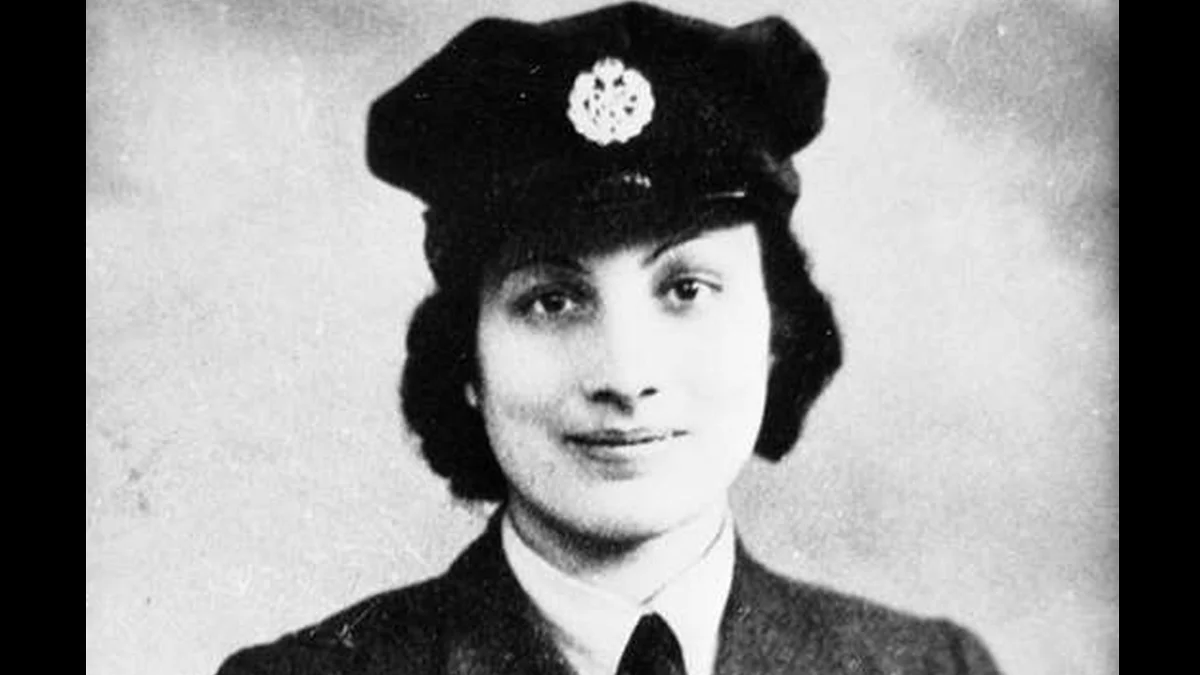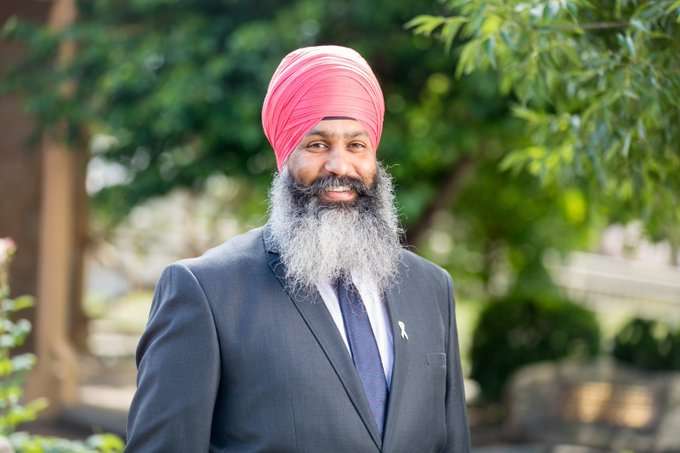As daughter of Indian Sufi saint Hazrat Inayat Khan, a descendant of Tipu Sultan, Noor’s natural instinct was against war; she was an accomplished musician and a writer of children’s stories
London: The story of Noor Inayat Khan, the British World War II spy whose Indian heritage goes back to the 18th century Mysore ruler Tipu Sultan, has been adapted for a new theatre production for the London stage, a PTI report in The Tribune, Chandigarh, says.
The Pravasi Samwas was among the first online news portals to publish an exclusive story by David Solomon of this intrepid British-Indian young woman, who made the ultimate sacrifice for king and country during the closing years of World War II
‘Noor’, playing at the Southwark Playhouse this month, recounts the incredible story of a young Sufi pacifist-turned-war-heroine. She became the first female undercover wireless operator to be sent from Britain’s Special Operations Executive (SOE) into Nazi-occupied France.
Her story first surfaced with the biography, ‘Spy Princess: The Life of Noor Inayat Khan’ by UK-based author Shrabani Basu, which revealed how Noor faced up to fascism with courage and was posthumously awarded the George Cross for bravery.
“It is vital to me to be part of sharing her story – not just as a chapter in history, but in terms of how it speaks to British life right now,” said Poonam Brah, the Indian-origin director of the new Kali Theatre stage production which opened last week.
“It re-frames the traditional narratives about who fought for our freedom in World War II and what they were defending, and represents the contribution both of the women agents of the SOE and people of colour to fighting WWII, connecting us all to our shared history and our sense of belonging in the UK,” she said.
The play, written by Azma Dar, captures with rare insight the intriguing complexity, self-doubt and extraordinary courage up until Noor’s torture and death in a concentration camp in Dachau in 1944 with the word “liberty” on her lips.
“Despite many setbacks due to her beliefs and cultural background, she played a vital role in WWII. Through years of research, my play is an attempt to capture the essence of Noor’s spirit, and to create an interpretation that reflects the many layers of her poetic, thrilling and incredible story,” she said.
What makes her moving and towering tale absolutely incomparable and extraordinary, is her Indian origin and her royal lineage as a direct descendant of Tipu Sultan, (born Nov 20, 1750 – died May 4, 1799), the ruler of Mysore
As the daughter of Indian Sufi saint Hazrat Inayat Khan, a direct descendant of Tipu Sultan, Noor’s natural instinct was against war and was an accomplished musician and a writer of children’s stories.
But she felt compelled to join the anti-Nazi mission when offered the job as an undercover agent, played on stage by British Indian actor Annice Boparai. “I was drawn not only to Noor’s fascinating story, but also her unique, enigmatic character. She was quiet and modest, yet outspoken, strong-willed and fearless,” said Dar.
Brah and Dar have been developing the play with Kali Theatre for several years, with initial workshops hosted by the National Theatre Studio in London.
Noor was the first woman British secret agent of the SOE (Special Operations Executive), codenamed ‘Madeleine’ to be sent across enemy lines in Occupied France during World War II, a vital link and lifeline for the underground French Resistance in occupied France, battling against the almost invincible, vice-like grip of Germany’s Nazi forces under Hitler.
Her other aliases were ‘Nora Baker’, ‘Jeanne Marie Renier’ and her radio call-sign that simply addressed her as ‘Nurse’.
Her overpowering tale is one of raw courage, grit, sacrifice – and ultimately death. She was betrayed, captured and executed as a spy in the Dachau concentration camp in Germany on September 13, 1944; a beautiful and illustrious life cut short at 30.
Until not so long ago, scarcely anyone except for immediate family members, close friends in England, Europe, America, and some in India, too, perhaps, had vaguely heard about her.
So for the most part, Noor Inayat Khan would continue to remain a shadowy blur, cloaked in a fog of near ignorance and indifference, as most people remained unaware of her invaluable services to King and country as a British spy.
However, as time went by, the mist began to clear and a book – “Spy Princess: The Life of Noor Inayat Khan” was published by writer, journalist and historian Shrabani Basu in 2006, acted as a powerful catalyst.
It didn’t take long for the tiny ripples of interest to grow into a raging storm of adulation and awe for this fearless woman and her sacrifice as a true patriot for England. Indeed, Noor became a sensation overnight, throughout the length and breadth of England, on the Continent, especially France, across America and most certainly in India, the land of her forefathers.
As a tribute and to preserve her memory for generations to come, Basu set up the Noor Inayat Khan Memorial Trust. It was unveiled in London’s Gordon Square by Princess Anne in November 2012.
Two years later, Britain’s postal service Royal Mail issued a stamp to honour Noor in March 2014. A campaign to have her as the face of the new 50 Pound note in England is still ongoing. The other Indians honoured with the Ble Plaque Award are Mahatma Gandhi, Jawaharlal Nehru and BR Ambedkar.
Other honours and awards given to Noor posthumously include the George Cross by Great Briitain. Only three women have been given this award. The Croix de Guerre award from France.
In 2020, Shrabani Basu was invited by the English Heritage group to unveil the Blue Plaque Award in London to honour Noor. Basu had been campaigning relentlessly for the conferment of this award since 2016.
In that same year, the English Heritage group had launched a “Plaques for Women” campaign and Noor is the first woman of Indian origin to be commemorated with the Blue Plaque.










